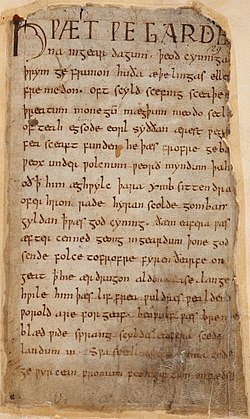Contents
- Ancient epics (to AD 500)
- Before the 8th century BC
- 8th to 6th centuries BC
- 5th to 4th centuries BC
- 3rd century BC
- 2nd century BC
- 1st century BC
- 1st century AD
- 2nd century
- 2nd to 5th centuries
- 3rd to 4th centuries
- 4th century
- 5th century
- Medieval epics (500–1500)
- 6th century
- 7th century
- 8th to 10th centuries
- 11th century
- 12th century
- 13th century
- 14th century
- 15th century
- Modern epics (from 1500)
- 16th century
- 17th century
- 18th century
- 19th century
- 20th century
- 21st century
- Other epics
- References

| Literature | ||||||
|---|---|---|---|---|---|---|
 | ||||||
| Oral literature | ||||||
| Major written forms | ||||||
| ||||||
| Prose genres | ||||||
| ||||||
| Poetry genres | ||||||
| ||||||
| Dramatic genres | ||||||
| History | ||||||
| Lists and outlines | ||||||
| Theory and criticism | ||||||
This is a list of epic poems.
